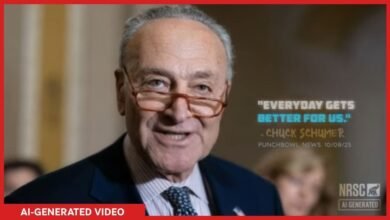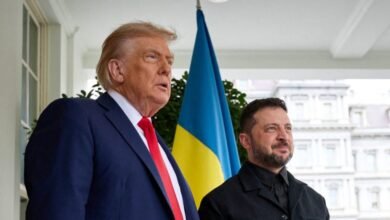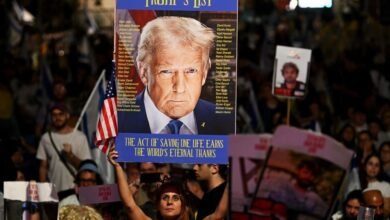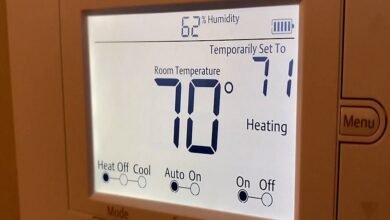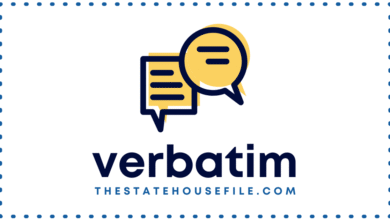Alliance Party face ‘a battle a day’ in Stormont power-sharing executive
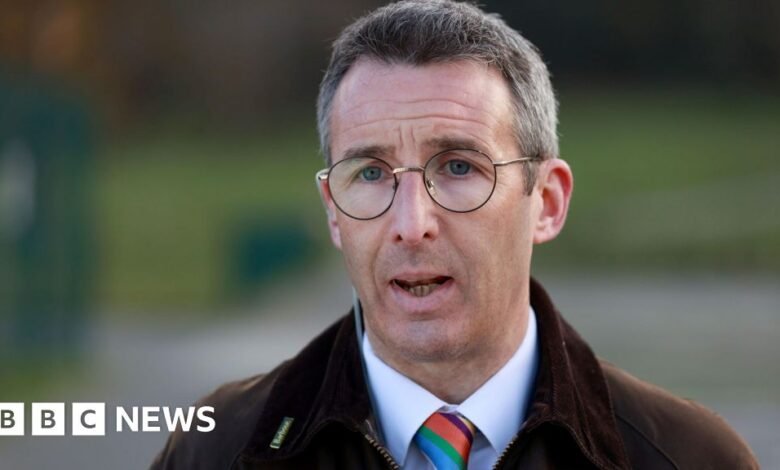
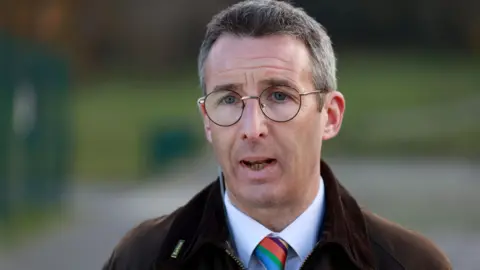 PA Media
PA MediaThe Alliance Party dislikes being called a middle-ground party but it seems to fit.
Its members find themselves in the middle of rows at Stormont, in the middle of Northern Ireland’s old tribal divisions and in the middle of the debate about a border poll.
In politics it is good to be talked about but there are very pointed words coming from its electoral rivals.
Mix that with the existing tensions between Sinn Féin and the Democratic Unionist Party (DUP) and you end up with pretty fraught relationships inside Stormont’s power-sharing executive.
“It seems what we are having is a battle a day,” said Andrew Muir, the party’s agriculture and environment minister.
“That serves no one in Northern Ireland.”
‘Divisive wedge issues’
The party’s frustration is obvious, and it goes beyond its anger at the party political name-calling that saw the Ulster Unionists describe the Alliance last week as “divided, desperate and drifting towards nationalism”.
Muir claims he has faced numerous delays in pushing through strategies to tackle environmental concerns.
“In recent months I have been really disheartened by the approach of the DUP,” he said.
“It’s not been focused on a positive vision for Northern Ireland, but just picking out wedge issues, very much from the playbook of Nigel Farage and Donald Trump.
“And the UUP are now much more of a lost cause – the idea of them being a moderate voice for unionism is not the case.”
Middle of the road
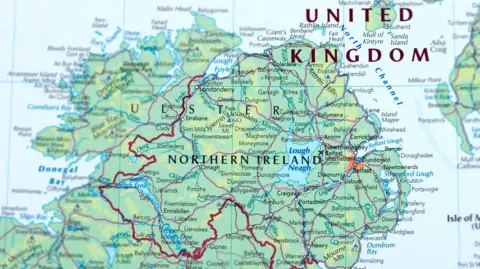 Getty Images
Getty ImagesAlliance might try to stay in the middle but it has had to choose sides in some of those divisive “wedge issue” debates.
“When you take the flag down from (flying every day at) Belfast City Hall you are pro-unity,” said Prof Peter Shirlow of the University of Liverpool.
“When they make other decisions they are pro-union.
“It’s the old line about standing in the middle of the road – you are getting attacked from both sides.”
There was another example of that this week when the Alliance leader, Naomi Long, told the BBC’s Borderland podcast that she wanted the secretary of state to give more clarity about the criteria he would use to decide whether to call a referendum on Irish unity.
There followed a flurry of comments and social media posts from unionist politicians accusing the party of pushing for a border poll.
The Alliance leader responded on X by calling it “nonsense” and “orchestrated outrage”.
But the party faces its own electoral divide and it has a physical form.
West of the Bann
The River Bann which runs down the middle of Northern Ireland is often used as a way of distinguishing east from west.
All Alliance’s Assembly seats are in the eastern constituencies.
West of the Bann it has struggled to win seats even in councils, despite its vote share soaring over the last two decades.
“Even in this stellar rise, they lost both of their councillors in Derry in the last local government elections,” said Ulster University academic Dr David McCann.
“Eighty-three per cent of Alliance’s vote is in the eastern constituencies of Northern Ireland.
“That other 17% is spread across the entirety of the west.
“They are just not a factor out there.”
Making changes
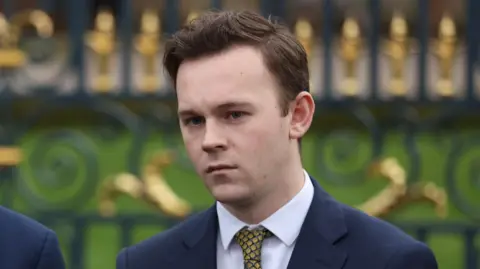 PA Media
PA MediaThe party’s most westerly MLA is its deputy leader Eóin Tennyson and he insists that is slowly starting to change.
“I am from west of the Bann… I understand those communities,” said the Upper Bann MLA.
“It was probably more of a surprise to my parents that I joined Alliance than whenever I came out as gay.
“If you compare where we were in west of the Bann constituencies 10 years ago to where we are now, it’s night and day.”
Many pollsters believe Alliance’s more liberal policies on issues like abortion and LGBT rights are more popular in urban areas.
In rural areas they struggle and they are not alone.
Green Party
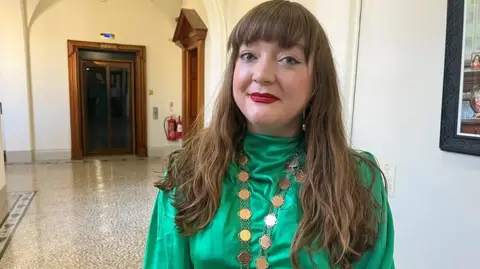
Despite success in pushing through climate change legislation, Northern Ireland’s Green Party has been squeezed completely out of the Assembly.
And it currently has representation on only two councils – Belfast and in the neighbouring Ards and North Down area.
With their left wing policies the Greens would not be considered as a middle-ground party elsewhere.
But in Northern Ireland they are often given the title because they don’t present themselves as either unionist or nationalist.
“When you say middle-ground I wince a little bit because I have never viewed my politics as middle-ground,” said councillor Áine Groogan.
“It might be in terms of the constitutional question here but in my view a working class unionist and a working class republican have the same concerns.”
Distraction politics
I meet Groogan in the chamber of Belfast City Council which has in recent weeks seen heated arguments over the promotion of the Irish language.
She knows that time spent discussing those topic leaves less time to address the other concerns of constituents.
“That is the sort of thing that keeps me awake at night,” she said.
“I am 34-years-old – I am your ceasefire baby.
“I never thought at this stage that these are the sort of conversations that we would still be having.
“What I find happening a lot in this chamber is distraction politics.”
However, constitutional questions and issues of identity matter to many voters in Northern Ireland.
And both the Greens and the Alliance know that it will be very hard to avoid getting dragged into the middle of those debates.
The first three episodes of ‘Borderland – UK or United Ireland’ are available now on BBC Sounds and other podcast providers.
Credit: Source link



